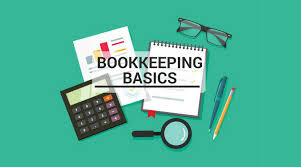 My husband runs a small business from our home, and I am lucky enough to be his bookkeeper. No, really, it’s not that bad. In fact, I have come up with some tips and tricks to make it quite painless. I will share a few of these with you.
My husband runs a small business from our home, and I am lucky enough to be his bookkeeper. No, really, it’s not that bad. In fact, I have come up with some tips and tricks to make it quite painless. I will share a few of these with you.
Don’t let receipts pile up
In order to avoid a pile up, I enter transactions into QuickBooks every single evening for my husband. We’ve gotten into this habit, and it allows me to keep up to date with his entries without having to stare at a dreaded pile of bookkeeping work.
So, each day when I come home, whatever invoices or bills of sale are on my desk, I simply enter. It usually takes less than 10 minutes each evening. It may sound crazy, but it makes bookkeeping so much easier because everything I enter is dated for that day. I don’t have to worry about entering transactions on the wrong date. I also can ask my husband for clarification on anything I’m not sure about, and he can easily answer me as it is fresh in his memory. Doing bookkeeping daily ensures that accounts receivable is kept current, and it reduces the chance of error as everything is done in a timely manner.
A shoe-box-and-envelope approach is effective
Depending on the size of your business, you may be able to get away with a simple shoe-box-and envelope approach. That is what I use for my husband’s business. I simply start a fresh envelope for each type of expense each year and then I put the receipts in order as the year goes by. That way if the government ever decides they want to audit my husband, the receipts are readily available to support my QuickBooks entries.
Organizing saves you money
Every expense and purchase counts as they are deductions from business income. As a result, it is important to keep on top of every expense that is a legitimate business expense, no matter how small. Be sure to keep all of your receipts and if you are unsure as to whether or not something might be deductible, ask your accountant or trusted advisor.
Don’t forget business use of home expenses
If you run a business from your home, then you are able to claim a percentage of your home expenses, including house insurance, property tax (or rent), mortgage interest, utilities, etc. The percentage you can claim is generally based on either the square footage used for your business divided into the total square footage of your home or by taking the number of rooms used for your business and dividing it into the total number of rooms in your house. Keep your receipts for all of these expenses as well so you can support your deductions should you ever be audited.
Hopefully these simple tips will help you if you are taking on the bookkeeping for a small business.




No Comments